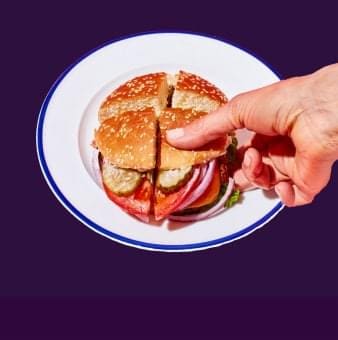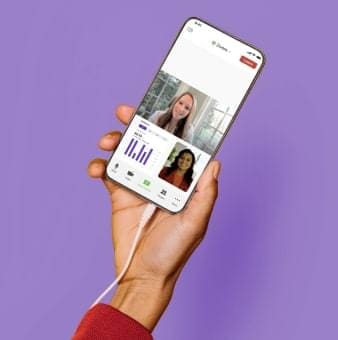Creating belonging by being yourself

Mental health Our Experts Wellbeing
Steps to gain self-awareness through mindfulness to become yourself and foster inclusivity.
While out to dinner with friends the other night, I encountered a decidedly befuddled waiter.
He fumbled through the wine list. He wasn’t sure how the chef prepared a dish and rushed back to the kitchen to ask.
When he finally returned, he confessed: “I’m super anxious. I’ve never waited tables before.”
My friends and I rallied around him, saying we weren’t in a hurry and he was doing a fine job.
After dinner, I thought about how our waiter’s authenticity created a lovely moment of connection. Suddenly, we all belonged to the common cause of having a good meal despite, or even because of, minor blips in service.
It’s a small example. But it holds a lesson about how being ourselves often creates the belonging we yearn for in our lives.
“True belonging only happens when we present our authentic, imperfect selves to the world; our sense of belonging can never be greater than our level of self-acceptance,” writes Brené Brown in Daring Greatly: How the Courage to Be Vulnerable Transforms the Way We Live, Love, Parent, and Lead.
Brown’s wisdom might be easier said than done. Sometimes self-acceptance seems like a never-ending quest for an elusive alignment between what we’re thinking, feeling, and sensing and an attitude of: “It’s all O.K.”
What’s more, sharing our tender thoughts or feelings with others is scary. And, to be sure, there are times, people, and places where it’s inappropriate, unsafe, and unwelcome.
And, yet, I keep returning to the waiter and how his vulnerability joined us in the shared humanity of anxiety and compassion.
Because belonging is such a primal and often unmet need, it’s worth exploring how being more of our full-fledged selves might foster more inclusivity.
Gaining self-awareness through mindfulness
Mindfulness can help. When we attend to what we’re thinking, feeling, and sensing with curiosity and openness, we gain self-awareness. And self-awareness is a powerful ally in aligning our inner selves with what we present to the world. It’s also a starting point for getting the courage to express ourselves authentically.
Another example comes to mind: I led a community meeting many years ago. The meeting had a protocol I was unaware of, and when I didn’t follow the rules, some group members became upset. (It happens.) Amid the dust-up, the woman who invited me to lead the meeting reassuringly said to me: “This is my fault. I’m learning some new leadership skills, and I neglected to tell you the meeting’s format.”
I still remember how her kind, honest admission made me feel less alone and adrift.
How might we learn from her and the waiter so we, too, can create connection and belonging for ourselves? Here are a few perspectives and practices to try:
- Meditate: We often meditate to relieve stress. That’s wonderful. But it’s not the only reason to meditate. When we meditate, we become more aware of our internal landscape. Such awareness might not always be pleasant, but more often than not it’s illuminating. And, after all, we can only be true to ourselves if we truly know what we’re thinking, feeling, and sensing.
- Risk vulnerability: At some point, we need to open up to others to create connection and belonging. If we’re leading a meeting, this might mean acknowledging we don’t know the answer, or it might mean confiding in a colleague when we feel overwhelmed. When acknowledging and expressing what we don’t know or how we feel, it’s wise to share what’s contextually relevant, which fosters understanding and avoids the pitfall of oversharing. The waiter shared his anxiety within the context of work and perceived mistakes he was making. He didn’t tell us more than we needed to know, but what he revealed united us in shared understanding.
- Shift from ‘me’ to ‘we’: As we become more aware of our internal landscape, it’s easier to imagine how others might have similar experiences. Everyone experiences physical pain or worry. And we all want to be happy. Knowing that we can become more empathetic and intentional about including others and building bridges of belonging– whether that’s done by asking someone their opinion in a meeting or inviting them out to lunch.
By focusing our awareness internally and connecting with ourselves, we can then meet friends, family, colleagues, and others in our world with more compassion and understanding of the life experiences we all share.
About eMindful
eMindful provides evidence-based mindfulness programs for everyday life and chronic conditions. It delivers measurable results by helping individuals make every moment matter, with greater focus, creativity, and purposeful decisions. Learn more about Wondr Health + eMindful here.





